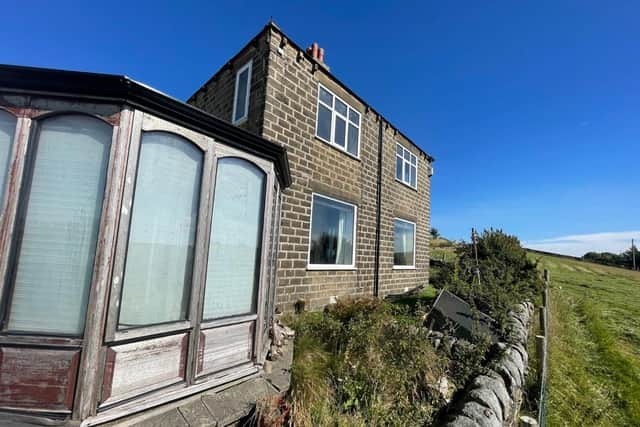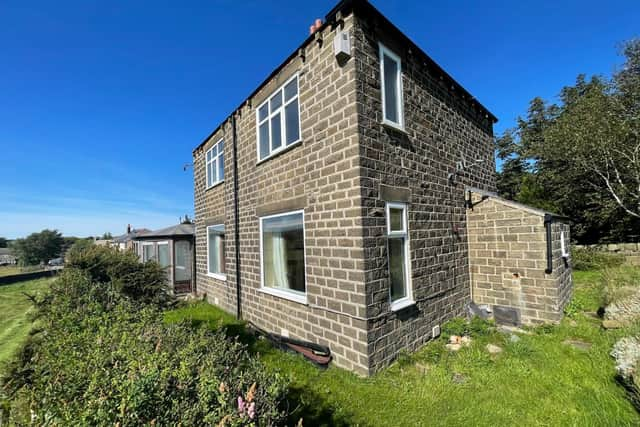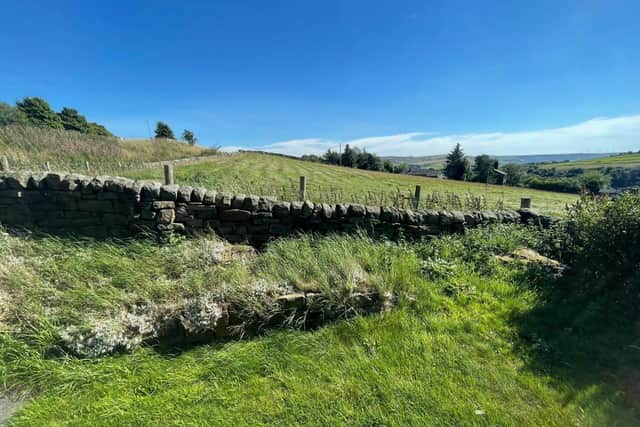It helped inspire some of his finest works and now the former family home of poet Ted Hughes is on the market in Heptonstall
The former family home of the late poet Ted Hughes is on the market in Heptonstall. The Beacon, Heptonstall, and its hilltop location with incredible, uninterrupted views is said to have inspired the works of Hughes and his wife Sylvia Plath with Plath writing to her mother in America: “Climbing along the ridges of the hills, one has an airplane view of the towns in the valleys; up here it is like sitting on top of the world'."
The property, which is on the market for £400,000 with Reeds Rains in Hebden Bridge, is just a short walk into Heptonstall village. In need of full modernisation, it has a dining/reception room, sitting room, conservatory with stunning rural views, a second sitting room and a kitchen/dining room.
Advertisement
Hide AdAdvertisement
Hide AdUpstairs are three bedrooms and a bathroom. The house also has a drive, parking and garage plus wraparound gardens with a lawn. Reeds Rains say: "All of the front aspect of the property is jaw droppingly beautiful."


Ted Hughes was born in 1930 in Mytholmroyd, near Hebden Bridge, and spent the first eight years of his life there before his family moved to Mexborough, South Yorkshire.
In 1952, when he was at Cambridge University, his parents moved back to the Calder Valley and settled at The Beacon at the top of Heptonstall village, near Hebden Bridge. Ted Hughes often returned to Heptonstall throughout the 1950s. Hughes and Plath stayed at The Beacon with his parents until their departure for America in June 1957 and in a letter to his brother he writes of the "happy life Sylvia and I lead", and how when they tired of writing and critiquing each other’s work, they would "walk out into the country and sit for hours watching things".
His was living with his parents, William and Edith, in 1965 and his letters describe walks in the area, him reading Yeats on the moor, and enjoying the "spectacle" of the weather, which was ever-changing.
Advertisement
Hide AdAdvertisement
Hide AdThis, the wild landscape and the birds and other creatures that inhabited it all feature in his poetry. In one letter he writes: "It is strange here just now – bright sunlight on all the fields and yet heavy rain hammering the windows".


Hughes and Plath stayed at The Beacon with his parents until their departure for her native America in June 1957. In a letter to his brother he writes of the "happy life Sylvia and I lead" and how when they become tired of writing, they "walk out into the country and sit for hours watching things".
They returned to The Beacon in August 1960 and in one letter he writes of "enormous blissful silence of this most beautiful spot in England" and says: "The silence here is overpowering – because the hills seem to embody it. You can see it. Everything is spellbound by it."
The marriage of Ted Hughes and Sylvia Plath, who had two children, Nicholas and Frieda, has been well documented. They later settled in Devon before separating and in 1963 Sylvia committed suicide in her London flat. She is buried in Heptonstall graveyard.
Advertisement
Hide AdAdvertisement
Hide AdMore grief followed when in 1969, Ted's lover Assia Wevill killed herself and their four year old daughter. After an attempt to settle back in the Calder Valley with his children, which involved buying Lumb Bank cottage, now used by creative writing organisation the Arvon Foundation, he headed back to Devon and found happiness with Carol Orchard


However, Heptonstall and the surrounding Calder Valley remained a huge inspiration. In a letter to the photographer Fay Godwin, with whom he collaborated to create Elmet, featuring his poems and her photographs of the Calder Valley, he describes what fascinates him is "The collision of the pathos of the early industrial revolution, that valley was the cradle of it, with the wildness of the place."
Former poet laureate Ted Hughes died in October 1998, aged 68.
For details of the sale contact Reeds Rains, Hebden Bridge, tel: 01422 843988
Comment Guidelines
National World encourages reader discussion on our stories. User feedback, insights and back-and-forth exchanges add a rich layer of context to reporting. Please review our Community Guidelines before commenting.